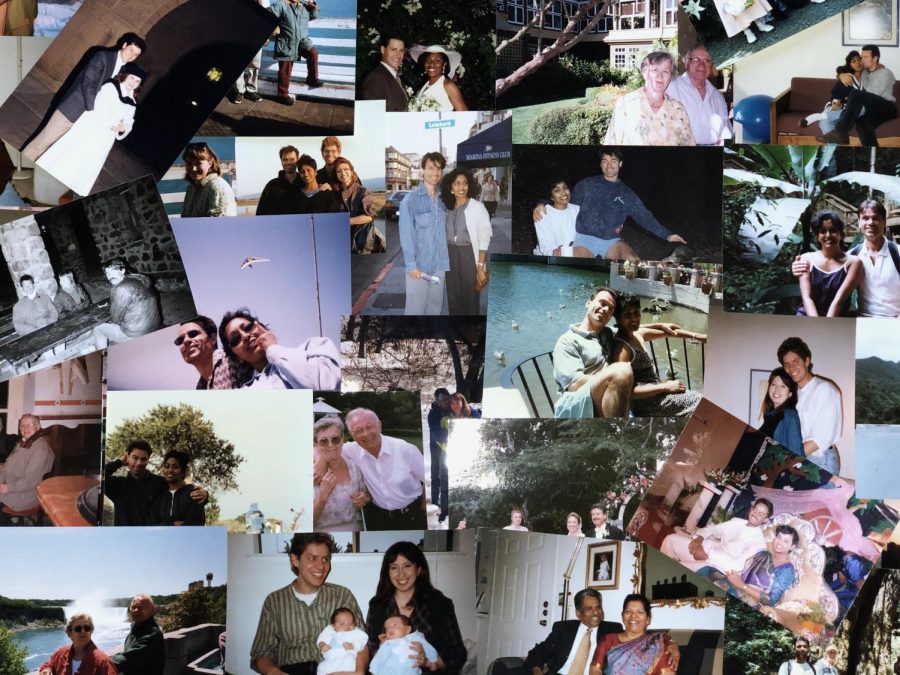First Comes the Love, Then Comes the Marriage?
A collage of some couples whose relationships ended in divorce or separation, and some that are still together and in healthy relationships.
April 22, 2020
More often than not, many young girls grow up dreaming of their perfect wedding and ideal husband. We grow up watching rom-coms and seeing “perfect” couples and happy endings. In reality, about 200 divorces happen during the roughly two hour runtime of a romantic comedy.
Throughout my life, I could never see myself getting married, and I found myself dreading the day that I would get proposed to. But at the same time, the ideas of getting married, making that commitment to someone, and not being alone were still pleasing to me. I then realized that it wasn’t that I didn’t want to get married, but that I had a problem with the way that I view marriage in the back of my mind, as a funeral for my own independent life, where I’d have to share it with someone else and fear the negative results that may come with.
A few years ago, I watched “How to Make an American Quilt” for the first time. This movie is about a young woman named Finn who goes to stay with her grandmother for the summer to clear her head and write.
Finn is soon to be wed, and suspects her fiance of cheating on her. While she is staying with her grandmother, she is able to gain wisdom and learn about love from the stories of her grandmother’s friends. In the movie, there is a scene where Finn, the young woman, says, “what they don’t tell us is that marriage is an anachronistic institution, created for the sole convenience of the father who needs to pass off his daughter into the care of another man.”
After hearing this quote in the movie, I thought to myself, that might be the reason that marriage always seemed questionable to me.
Although I know that nowadays the purpose of marriage is not for a father to give away his daughter, it still makes me think about how that could have been the case in some instances many years ago, and maybe that past practice has contributed in part to the foundation of modern marriage tradition.
According to the American Psychological Association, 40 to 50 percent of marriages in the U.S. end in divorce or separation. This trend of separation in marriages can be troubling.
A national survey found that lack of commitment is the most common reason for divorces, among many other reasons. The NTI (National Fatherhood Initiative) conducted a survey on marriage in America and found that younger respondents were more likely to agree with the statement, “Marriage is an old-fashioned, outmoded institution.”
There are many different opinions on this topic and how it is viewed. For example, last year my family hosted a 16-year-old exchange student from Germany named Antonia. On a couple of occasions, she talked about how she already has her wedding planned, what she wants it to be like, and the rings picked out, despite her parents being divorced.
I found her whole wedding plan idea a bit surprising since I couldn’t see myself doing that for a very long time, or even wanting to think about that, even though my parents are happily married.
From this experience, I learned that sometimes nurture does not play a role for some people in their choice to get married. My parents are happily married, yet I have always been skeptical of the concept of marriage. Antonia, on the other hand, anticipates her wedding in excitement, despite the estrangement of her parents.
Marriage is an important tradition in societies around the world. In Indian culture, it’s not unusual to have arranged marriages, and in American culture, it’s an ideal picture that you go to college, get married, and have kids.
In an Indian family, the pressure to marry is very strong.
My mom’s side of the family is Indian, and I have noticed the concern, not particularly on myself, but on other relatives who are in their thirties and not married yet. I hear older relatives discuss their disappointment in their sons or daughters still being single. As this tradition runs in my own family, it’s not unusual for other cultures to act this way on the topic of marriage and relationship status.
In no way am I saying that people should not be getting married nor am I anti-marriage, but simply sharing my thoughts. Many couples that I know have been happily married for many years, and have put effort into their relationship to make that marriage work. However, I strongly believe that marriage isn’t for everyone and shouldn’t be a societal pressure.






Ms. McDonald • Apr 24, 2020 at 7:04 am
Thank you for sharing your point of view. I really enjoyed reading this article.